Introducing the River View Web Player & Other News from River Studies
It has been a long while since my last blog entry in regards to river view panoramas. In the meantime the recording setup runs basically stable (putting aside minor problems with loose connectors) even under rough conditions (see also the gallery “Making Of” at the end of this post).
I just came back from artist-in-residency stays in Varanasi/Benares and Guwahati in India, that enabled me to have a few extensive recording sessions on various vessels like house boats, motor and rowing boats on Ganges River – for one the most sacred river to Hindus and probably most worshipped river on the planet, next to being one of the most polluted rivers of the world – and Brahmaputra River in Assam.
Many thanks go to Kriti Gallery in Varanasi and the Periferry project in Guwahati for hosting me and helping me to get onboard.
Web Player
Meanwhile I also just finished the “River View Web Player” as a public online Beta Version. It runs on openlayers and geodjango and features the growing archive and collection of river views (up to now including views of Ganges, Brahmaputra, Danube and Nile River). There are still plenty of things to polish up, some image material to be retouched and/or uploaded, but see yourself here:
Using Elphel
I am using an Elphel 353 equipped with 8 or 16mm movie lenses from the seventies to acquire this imagery. The camera delivers a Window-of-Interest video stream of 2592 x 48 pixel size with a variable frame rate between 1 and 300fps (changed on the fly according to the speed of the vessel and distance to the object of focus. That is done manually and under visual control: similar to the auto-focus mechanism, it is also a question of choice and decision and therefore not easily automatable).
The video stream is then processed and saved by custom software.
I am not using Elphel’s internal linescan/photofinish for now, since it still behaves pretty unstable and unpredictable when changing parameters like TRIGGER, VIRT_KEEP and VIRT_HEIGHT on the fly. Also, having a line per frame allows me for a more fine-graded control and preview as long as enough frames are delivered.
Elphel’s internal linescan mode, however, works quite well and stable if it runs as fast as it goes or once you have fixed a setup – as some testing on Austrian Highways prove (find more here):
Sources
The source code of both, my recording software malisca and the web app and player, are open on my github repository.
Making Of / Gallery
A brief guided tour to Ganges and Brahmaputra river recordings in pictures:
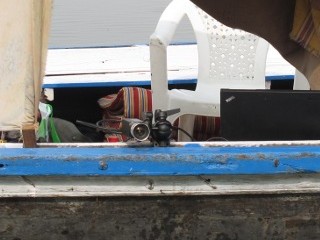
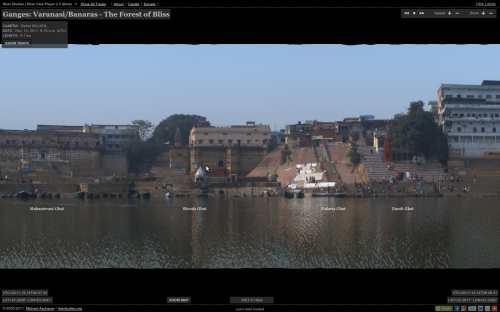

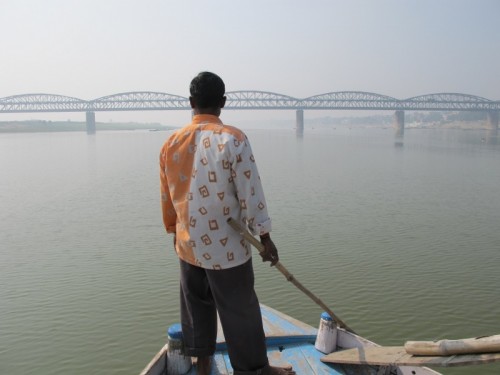
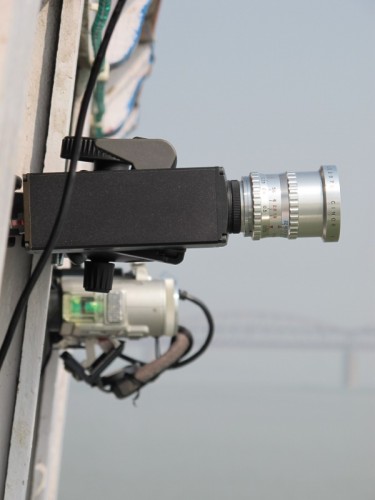
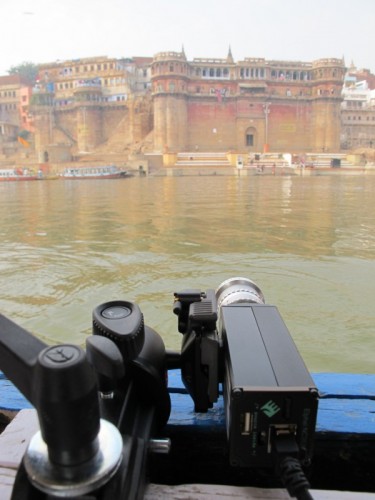
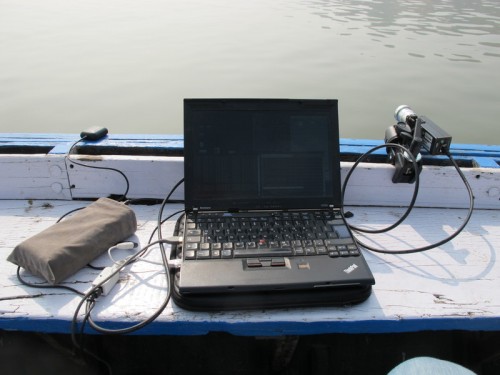
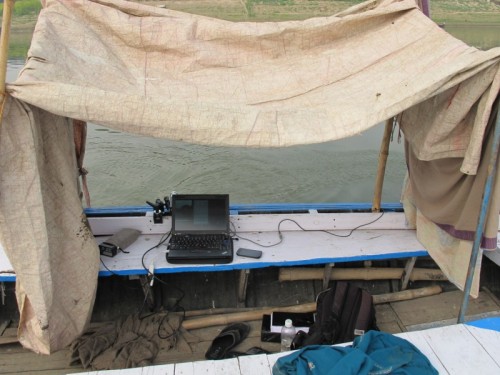
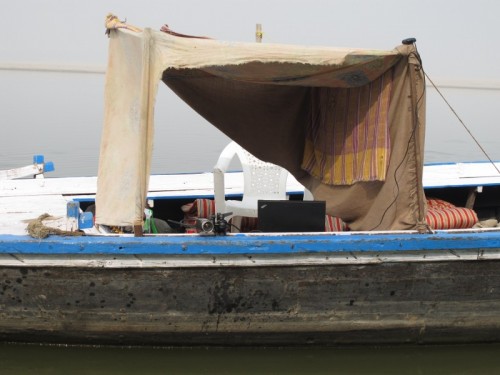
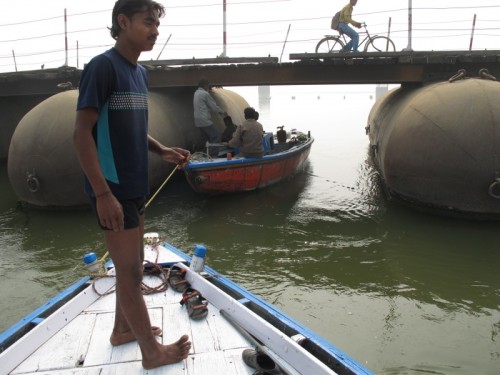
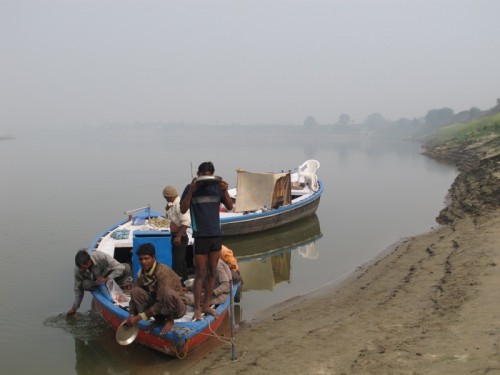
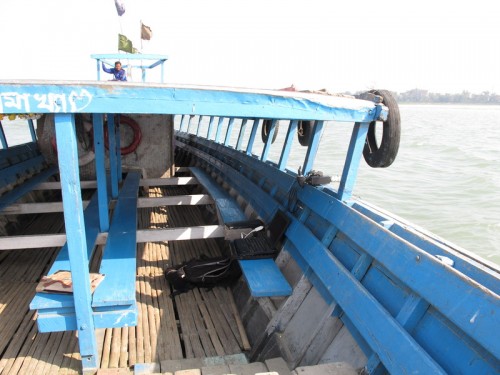
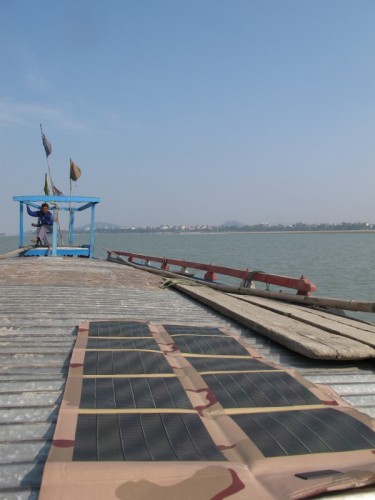
Very inspiring post. Thank you!
Please export full posts in your RSS feed.
Thank you for this post, Michael; we love to see the camera at work, in such an interesting application.
done. RSS1 feed should now contain the full post. Please let us know if it works for you!